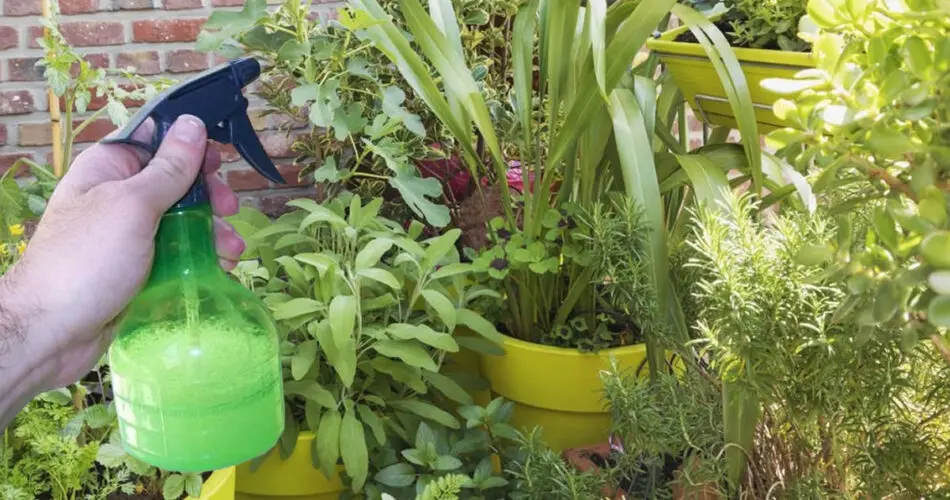Introduction:
Vinegar, a kitchen and household staple, is renowned for its versatility and cost-effectiveness. Beyond its culinary and cleaning applications, vinegar unveils a treasure trove of benefits for your garden and orchard. This humble product, often overlooked, can be a game-changer for plant enthusiasts with its myriad properties. In this article, we delve into 18 ingenious ways vinegar can transform your gardening experience and replace commonly used products with remarkable results.
Section 1: Vinegar as a Herbicide
Undoubtedly the most familiar application of vinegar in gardening is its role as a herbicide. Its acetic acid content acts as a potent contact herbicide, effectively combating insects and fungi. However, a cautious approach is needed to prevent damage to your plants, making it an ideal solution for eradicating weeds between cracks or on walls.
Section 2: Vinegar for Soil Acidification
Certain plants, such as azaleas, hortensias, and gardenias, thrive in acidic soil. A simple solution involves watering these plants with a diluted white vinegar solution. Mixing 250ml of distilled white vinegar with 5 liters of water creates an acidifying concoction that, when used sparingly, proves beneficial without causing harm to the plants.
Section 3: Vinegar as a Fungicide
The acidity of vinegar serves as an effective defense against plant-damaging fungi. By reducing the soil pH and creating an inhospitable environment for fungi, a solution of vinegar and water, combined with bicarbonate, can be applied regularly to keep your plants healthy.
Section 4: Vinegar as a Rooting Agent
Harnessing its antiseptic properties and enzyme content, vinegar emerges as an intriguing rooting agent. This natural alternative fosters root development, providing a sustainable and chemical-free solution for your garden.
Section 5: Additional Vinegar Uses in the Garden:
1. Ant Deterrent: Keep ants at bay by spraying vinegar around doors, windows, and their pathways.
2. Cat Repellent: Discourage cats from certain areas by applying white vinegar, as most cats find the smell unpleasant.
3. Flower Longevity: Prolong the life of cut flowers by adding 2 tablespoons of white vinegar and 1 teaspoon of sugar per gallon of water.
4. Lime Scale Removal: Rid glass, terracotta, and plastic vases of white stains by soaking them in equal parts water and distilled white vinegar.
5. Bird Bath Cleaning: Maintain bird baths by regularly washing them with undiluted white vinegar, ensuring a thorough rinse afterward.
6. Rust Removal: Eliminate rust from metal objects by applying distilled white vinegar overnight.
7. Pond Disinfection: Prepare your concrete pond for fish and plants by adding 5 liters of vinegar per 1000 liters of water, leaving it for three days before rinsing thoroughly.
8. Garden Furniture Sanitization: Wipe down garden and balcony furniture with a cloth soaked in distilled white vinegar for effective cleaning and disinfection.
9. Slug Expulsion: Create a solution of equal parts distilled white vinegar and water to repel slugs.
10. Moth Traps: Mix 2 parts distilled white vinegar with 1 part molasses, pour into a container, and hang it in a tree to attract and trap moths.
11. Berry Stain Remover: Rub white vinegar on red fruit stains on your hands to remove them effectively.
12. Fountain Cleaning: Soak the pump in white vinegar to eliminate mineral deposits and maintain the cleanliness of your outdoor fountain.
13. Pet Odor Eliminator: Rid your furry friend’s coat of unpleasant smells by rubbing it with pure vinegar and rinsing thoroughly.
Conclusion:
The untapped potential of vinegar extends far beyond the kitchen and cleaning cupboard, offering a natural, eco-friendly arsenal for gardening enthusiasts. By incorporating these 18 innovative applications, you can harness the power of vinegar to foster a healthier and more vibrant garden while minimizing your reliance on conventional chemical products. Embrace the versatility of vinegar and watch your garden flourish with these eco-conscious solutions.

